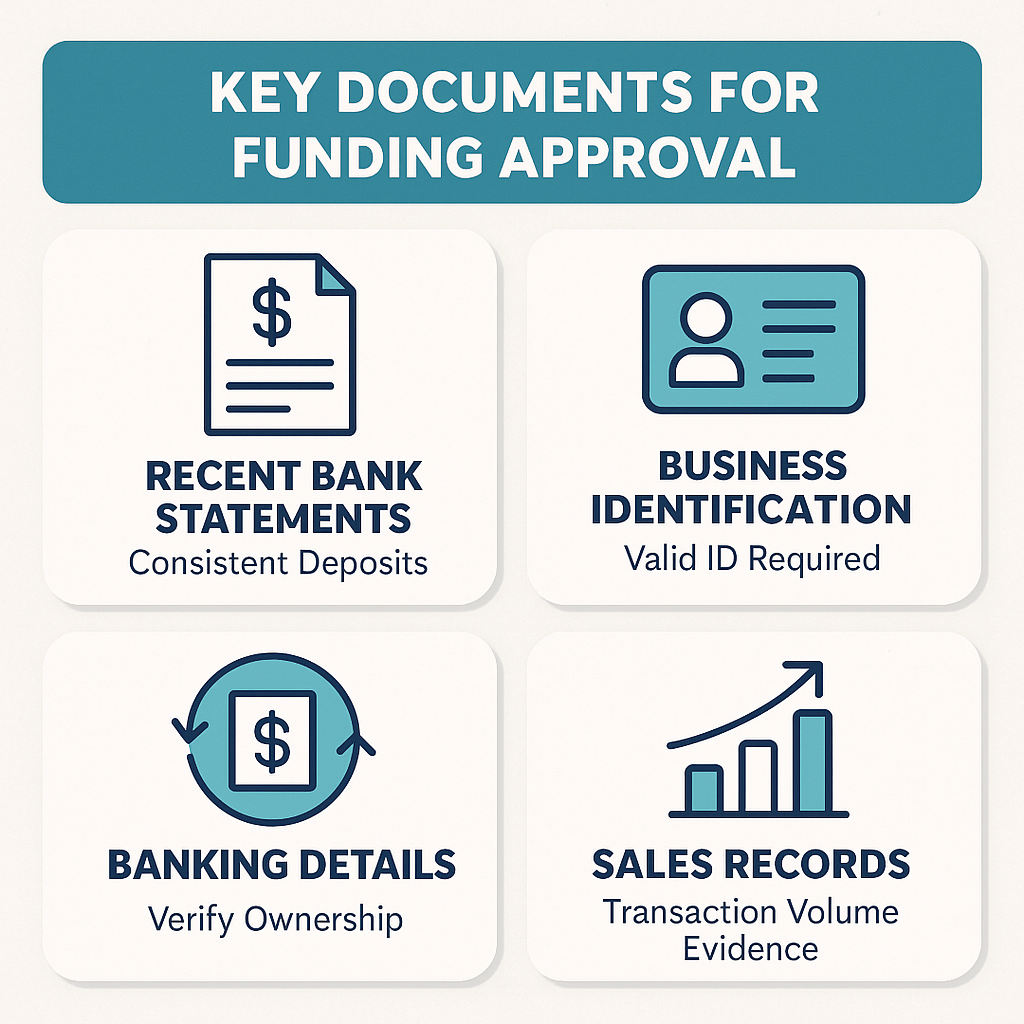Getting approved for business funding can feel like navigating a maze. Small business owners often wonder why their applications get rejected while others sail through the approval process. The difference typically lies in preparation, documentation, and understanding what funding providers actually look for when evaluating applications.
Common Questions About Funding Approval
Q: How long should my business be operating before applying for funding?
Most funding providers require businesses to have been operating for a minimum period, often at least six months to a year. This timeframe allows them to assess your business's stability and revenue patterns. The longer your operating history, the better your chances may be of demonstrating consistent performance.
Q: What's the most important factor funding providers consider?
Revenue consistency tends to be the primary factor for alternative funding options like merchant cash advances. Providers typically focus more on your monthly sales volume and cash flow patterns than traditional credit scores, making these options accessible to businesses that might not qualify for traditional financing.
Why Revenue Documentation Matters
Your revenue documentation serves as the foundation of your funding application. Funding providers use these records to calculate your business income trends and assess your ability to handle the advance or financing arrangement. Without comprehensive financial records, even profitable businesses might face rejection.
Bank statements typically need to cover at least six months of recent activity. These statements reveal seasonal fluctuations, growth patterns, and the overall health of your cash flow. Digital statements are often preferred because they can be processed more quickly and reduce the risk of processing delays.
Balance sheets and sales reports complement your bank statements by providing additional context about your business operations. These documents help funding providers understand not just how much money flows through your business, but also how efficiently you manage your finances and inventory.
Essential Documentation for Approval

- Recent bank statements: Typically six months of statements showing consistent deposits and business activity
- Business identification: Valid driver's license or state ID, along with business registration documents
- Banking details: Voided business check to verify account ownership and routing information
- Sales records: Recent sales reports or merchant processing statements that demonstrate transaction volume
Strategies for Improving Eligibility
- Maintain organized records: Keep your financial documentation current and easily accessible to speed up the application process
- Build consistent sales history: Focus on maintaining steady revenue streams rather than sporadic large sales that might not demonstrate reliability
- Ensure compliance: Follow all applicable state regulations and maintain proper documentation throughout your business operations
- Prepare complete applications: Submit all required documents at once to avoid delays and demonstrate professionalism
Improving your eligibility for business funding comes down to preparation and understanding what providers need to assess your application. By maintaining thorough revenue documentation, building consistent sales history, and organizing your financial records, you position your business for faster approval and better funding terms.

.png)






